Mother Night is the twelfth book in Rachel’s Best Vonnegut Reading Order. I am reading it tenth for reasons I will explain below.
I’m breaking the order again, and this time, I knew I was doing it. But I promise I have a good reason. Or at least a reason. There are three Vonnegut novels my local library (I live in Columbus, Indiana, and yes, it is a long drive to work every day, thanks for asking) does not have: God Bless You, Mr. Rosewater; The Sirens of Titan; and Mother Night. The first two were way back at the beginning of the order, so I just nicked them from the gift shop when it came time for me to read them. (Fear not, I returned them.) But it’s late in the summer at the time I’m writing this, if not at the time you’re reading it, and my time at KVML is coming to an end. If I didn’t read Mother Night now, I’d have to buy it, and I am abominably stingy. So I skipped a few books. Maybe I’ll come back to them. Maybe I won’t. But for now, I’ll tell you all about my Mother Night reading experience.
If you’ve been in the museum, you’ll have noticed the quote we have painted on the wall of the library area: “We are what we pretend to be, so we must be careful what we pretend to be.” That quote comes from the introduction to Mother Night, the only one of Vonnegut’s books he admitted had a specific moral. The story of Howard W. Campbell, Jr., illustrates that moral.
Careful readers of Slaughterhouse-Five may remember the name Howard W. Campbell, Jr. Howard’s pro-Nazi radio broadcasts appear in one chapter, and his person appears in another. In Slaughterhouse-Five, Howard is presented as an American-turned-Nazi. Because I had read Slaughterhouse-Five and not Mother Night until very recently, that was how I described Howard’s character in tours: an American-turned Nazi. Until one day, when one of my coworkers corrected me.
“Actually,” he said, “Howard was a spy for the Americans.”
Boy, did I want to get my hands on Mother Night after that.
Of course, my coworker was right. Howard does become a spy for the Americans, not revealing his undercover work to even his beautiful German wife, Helga, whom he adores and who adores him despite the sickening pro-genocidal front he puts on to everyone. (More on that later.) His radio show, highly acclaimed by Nazis, is filled with secret coding only the Americans know how to pick up. Thus, he does his country many great services during the war. But in this year, 1961, Howard is standing trial for war crimes in Israel. Why? Who put him there? And don’t they understand that he was just trying to help the Allies?
It turns out that Howard’s story isn’t quite the story of a Nazi sympathizer, and it isn’t quite the story of an American spy. It’s the story of a man who’s so good at acting that he helps the enemy as much as he helps his country. There’s a chilling moment where Howard’s German father-in-law says he used to hate Howard and wish he would be shot as a spy. But now, he says:
“I don’t care now if you were a spy or not . . . You know why?” he said.
“No,” I said.
“Because you could never have served the enemy as well as you served us,” he said. “I realized that almost all the ideas that I hold now, that make me unashamed of anything I may have felt or done as a Nazi, came not from Hitler, not from Goebbels, not from Himmler – but from you.”
I was lucky I got to sleep the night after I read that for the first time.
Spoilers are almost inevitable when discussing this book; I may have revealed too much already. What else do you need to know, and how can I put it as simply as possible? How’s this: nothing about Mother Night is simple. Nothing. Even Howard’s most amicable relationships have layers of darkness to them. Take his wife, Helga, for example. She and Howard have a gloriously happy marriage despite the war; Howard often refers to them, in terminology reminiscent of Vonnegut’s later book Cat’s Cradle, as a “nation of two.” He claims Helga wouldn’t have thought any less of him had she known he was an American spy, nor would she have told his secret.
So why didn’t he tell her, then? Here’s his reasoning:
It would simply have made my heavenly Helga’s world, which was already something to make The Book of Revelation, seem pedestrian.
The war was enough without that.
Pedestrian? Being the wife of a tip-top-secret spy is pedestrian? I don’t think that word means what you think it means, Mr. Campbell.
But wait, there’s more: Howard also says Helga loved him unconditionally despite the terrible things he said on the radio. I think that scares me even more than his reasons for not telling her the truth. But then again, how many of the two million-odd other wives in Nazi Germany would have fought against their loving husbands on an ideology nearly everyone else in the nation believed anyway?
These are the kinds of questions Mother Night puts to its readers. If you’re not up to them, you shouldn’t be. I doubt Kurt himself was. I know Howard W. Campbell, Jr., wasn’t either. But just because these questions can’t be answered doesn’t mean they shouldn’t be asked.
Emma’s Overall Reaction: Read this book. If you’re too cheap to buy it, do it anyway. You’ll like it. And if you don’t, I know a young intern who would be thrilled to take your copy off your hands.

To follow my advice and purchase Mother Night, visit this link.



